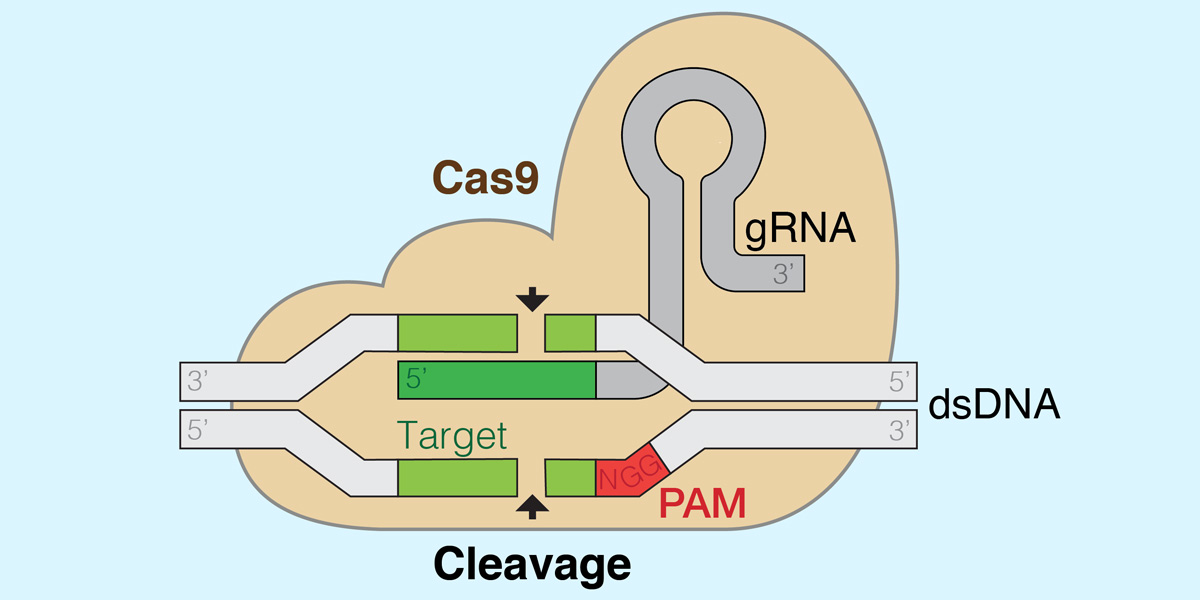
Dr Michael Antoniou believes that the vast majority of genome edited organisms would have to be regulated and labelled as GMOs, under the European Court of Justice advocate general's definition
In a preliminary legal opinion for the European Court of Justice, advocate general Michal Bobek advised that “organisms obtained by mutagenesis” should not be seen as genetically modified, unless they contained recombinant nucleic acid molecules or other GM organisms.
The new legal opinion has given rise to controversy, with some NGOs concerned that the advocate general has opened the door for some of these techniques to be exempt from the risk assessment, traceability and labelling regulations that normally apply to GMOs.
Reflecting this view of the opinion's implications, the article below, from the Guardian, is headlined, "Gene edited crops should be exempted from GM food laws, says EU lawyer".
However, Dr Michael Antoniou, Head of the Gene Expression and Therapy Group at King's College London, believes that the new legal opinion, if confirmed by the European Court of Justice later this year, requires that the vast majority of organisms produced by new mutagenesis and genome editing techniques are regulated as GMOs. Dr Antoniou said:
"In my view, the genome editing tools based on zinc finger nucleases and TALENs, as well as oligonucleotide-directed mutagenesis, all involve the use of recombinant nucleic acid molecules and therefore all organisms produced using these methods will have to be regulated as GMOs, by the definition set out in the advocate general's legal opinion.
"As for the CRISPR genome editing system, the guide RNA that is an integral part of the genome targeting mechanism of this technology is also a recombinant nucleic acid molecule. Therefore it seems to me that organisms produced with the CRISPR system, according to this opinion, are also GMOs and should be regulated accordingly.
"I believe that any argument to the contrary, that is, that the guide RNA of CRISPR does not constitute a recombinant nucleic acid molecule, would not be true to the state of the science. Thus in conclusion, all genome edited organisms produced by any of the current methods fall under the GMO regulation, and in my view this legal opinion supports that.
"However, interpretation of this opinion will remain controversial until somebody tests it in court or by trying to market (for example) a CRISPR-generated product based on the claim that the guide RNA component does not constitute a recombinant nucleic acid molecule and thus falls outside the definition of a GMO."
---
Gene edited crops should be exempted from GM food laws, says EU lawyer
Arthur Neslen
The Guardian, 18 Jan 2018
https://www.theguardian.com/science/2018/jan/18/gene-edited-crops-should-be-exempted-from-gm-food-laws-says-eu-lawyer
* Technology can help foster specific positive traits in plants but can also have potentially dangerous ‘off-target’ effects, say critics
Gene editing technologies should be largely exempted from EU laws on GM food, although individual states can regulate them if they choose, the European court’s advocate general has said.
The opinion may have far-reaching consequences for new breeding techniques that can remove specific parts of a plant’s genetic code and foster herbicide-resistant traits.
Hundreds of millions of dollars have been invested in the technology, which could be subject to labelling, authorisation and safety checks, if the court decides it falls under the EU’s GM legislation later this year.
But in a complex preliminary opinion, Michal Bobek advised that “organisms obtained by mutagenesis” should not be seen as genetically modified, unless they contained recombinant nucleic acid molecules or other GM organisms.
Biotech industries argue that gene editing-type alterations could occur naturally through evolution, but critics counter that they involve genetic mutations that are lab-based and artificial by definition.
Dr Michael Antoniou, the head of the molecular genetics department at King’s College London, said exempting new plant-breeding technologies from GM laws was “wrong and potentially dangerous”.
“None of these gene editing methods are perfect,” he told the Guardian. “They have ‘off target’ effects that can inadvertently disturb the biochemistry of organisms leading to unintended outcomes which – if you’re making a new gene edited food crop, for example – could result in the unexpected production of a new toxin or allergenic substance.
Friends of the Earth Europe called for the European court of justice “to not uphold today’s opinion, and instead make sure that all new genetically modified foods and crops are properly regulated.”
The European commission is waiting for clarification from the courts before deciding whether new legislation – or an update of existing laws – could be needed for the new technology.
EuropaBio, which represents the largest and most influential biotech industry groups in the EU, gave the court’s opinion a cautious thumbs up.
John Brennan, EuropaBio’s secretary-general said: “The advocate general’s opinion demonstrates that necessary steps are being taken towards clarifying the regulatory status of products that have been developed using the latest biotechnological tools and applications. We trust that the forthcoming ruling will contribute to establishing regulatory clarity.”
The court was originally asked for its opinion by France in 2016 after a coalition of farmers and environmental groups had called for herbicide-tolerant crops resulting from new breeding techniques to be treated as GM products.










